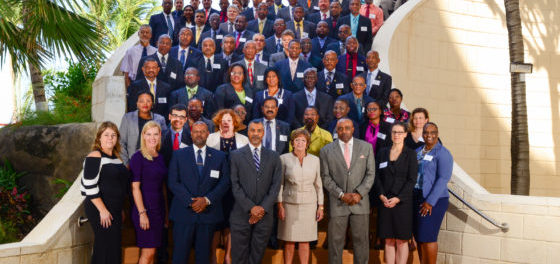Press Release:-On April 25-27, United States Customs and Border Protection hosted a Border Security Professional Exchange with CARICOM Advance Passenger Information System (APIS) member states and regional partners focused on issues of mutual concern related to border management throughout the Caribbean. The three-day exchange was funded by the United States Department of State under the Caribbean Basin Security Initiative.
The exchange was designed to increase collaboration between international partners and the United States government on border security. Subject matter experts led robust and productive discussions on topics such as foreign terrorist fighters, border security, migration trends, and countering criminal networks.
Participants included leaders working in customs, immigration, and police operations, as well as permanent secretaries from the following CARICOM member states: Antigua and Barbuda, Barbados, Dominica, Grenada, Guyana, Jamaica, Montserrat, St. Kitts and Nevis, St. Lucia, St. Vincent and the Grenadines, Suriname, and Trinidad and Tobago. Additional participants included border security professionals from the Dominican Republic, Panama, and the United States; as well as the Netherlands, the United Kingdom, and those two nations’ respective overseas territories.
The professional exchange opened with keynote remarks from the United States Ambassador to Barbados, the Eastern Caribbean and the OECS Linda Taglialatela, and Rayburn Blackmoore, Minister of Justice, Immigration and National Security for Dominica and Chair of the Council for National Security and Law Enforcement within CARICOM.
The event also included an historic signing ceremony in which the United States and Turks and Caicos Islands pledged to work together, in cooperation with CARICOM APIS partners, to mitigate transnational crime and counter terrorist threats through the CARICOM APIS program. Notably, Turks and Caicos is the first CARICOM associate member to join this important program.
“For the region’s borders to be secure, we must not only work within our sovereign states to identify and implement action,” said Ambassador Taglialatela. “We must also seek input from Caribbean and U.S. government agencies, and our partner nations around the globe. That is how we effectively secure our communities and protect our citizens — and our families.”

Leave a comment
You must be logged in to post a comment.